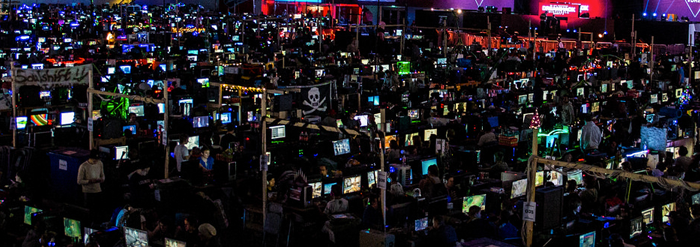
The ubiquity of early access titles is currently a net positive for the gaming community but it will only remain that way if we consciously make that decision. The biggest two benefits of this phenomenon are that gamers are nicer to developers and independent developers have a chance to self-fund or crowd-fund their projects without having to cater to corporate interests. Bugs are present in every game, even fully polished triple-A projects. When we encounter a bug, our first reaction should be something like “I wonder if the developers know about this bug. Is there a way I can report it, if they don’t?” instead of something like “Those stupid devs have no idea what they are doing.” The reason that the former is better than the latter is that the former represents a healthier attitude for our community and our individual mindsets. Video games have an inherent effect on the mental health of the player. It can be positive, it can be negative. Regardless of the effect’s objective impact, it’s very important to stay keenly aware of them when playing and critiquing games. The early access modifier encourages players into the healthier bug-found-reaction a much higher percentage of the time. Almost every day, I hear a streamer say something like “Oh, that’s a bug!! Haha. Well, it is early access.” That understanding and forgiving spirit should be gleefully applied to early access titles. It should also be applied to every game that is already performing reasonably well. However, if the game is super broken and overpriced from the gate, that’s a separate discussion. I’m not taking about those games. I’m talking about games that are mostly doing exactly what they set out to do with a bug here and there. Be understanding and forgiving. It’s better.
The frontline duo of modern game release is publisher and developer. The publisher wants to make money. The developer wants to make an awesome game. Those goals are often complementary and often at odds. The publisher, usually the larger and more powerful entity of the pair, is incentivized to amplify annoying loot-box like mechanics designed to lure away your dollars and attention and speed up or delay release dates for reasons that have nothing to do with game quality and everything to do with quarterly profits. Of course, companies have to make money. But, when profit is more important than beauty the cultural cost quickly outweighs the monetary gain. Early access, and its attendant low cost buy in or crowd sourced funding model, allows developers to make great games for the sake of making great games while simultaneously feeding and housing themselves. That’s a wonderful thing, worthy of acclaim. It’s an ultra-efficient mechanic that empowers devs to make the games they want and gamers to support the games they like without having to consider casting the wide net of popular appeal. Niche devs can make cool games for a specific crowd in a reasonable time frame and everyone’s better off for it. I really love this part of the early access phenomenon. Power to the People.
That said, there is a major downside to early access that needs to be considered. Big studios will be tempted to abuse the psychological impact of early access and subsequently water down the phrase’s meaning. When a polished game from a relatively large developer advertises one of its releases as early access, it’s likely that it will raise the bar that we judge other early access titles by. Possibly raising the bar beyond what small developers can reasonably achieve. We have to be diligent about protecting the understanding and forgiveness being offered to small teams in the current cultural climate. Epic Games’ Fortnite is an example of what could become a dangerous trend. I like Epic. I like Fortnite. However, they carried the early access modifier farther than it should have been carried. No small team will ever be able to make a game as high quality as Fortnite was while it still had the early access modifier on the bottom of its homepage. They should have used other adjectives like “Open Beta” or “First Look” at that point. Leave “Early Access” alone for the people that need it. Now, the door is ajar for less scrupulous companies to wave the early access flag simply as a way to milk our pockets while at the same time enjoying magnified bug forgiveness. To that end, I offer some starting criteria. Where Fortnite was at the end of its early access phase was beyond where the descriptor should go. Astroneer and Oxygen Not Included (at the time of this publishing) are at the pinnacle of where the descriptor should go and should be removing the modifier soon. Below those game, in terms of quality, and above the objectively terrible titles is the fruitful land of Early Access. Kudos to Valve for keeping a healthy eye out for that on Steam.
In conclusion, support early access games. If you like a game, help it be a thing. If you don’t like a game, don’t help it. Give the people who love making games as means of contributing to culture, not just a way of making profit, a chance to live and thrive in pursuit of the art form we all love. Beware of greedy executives misusing the early access phenomenon to get you to buy in to their money hungry machines. Corporations are not people. They’re made up of people, technically. But, as their numbers (population and profit) grow higher and larger, the impact any human or sense of humanity gets lower and smaller. Be diligent, my friends. Game on!
